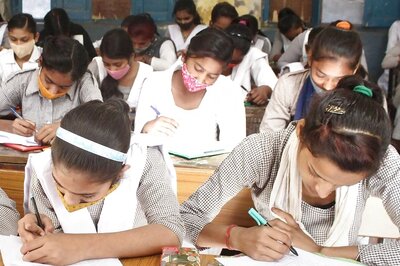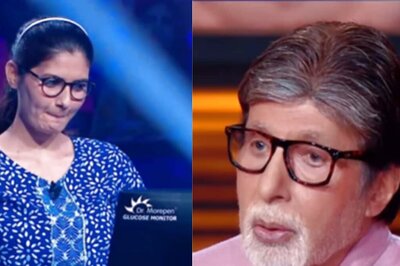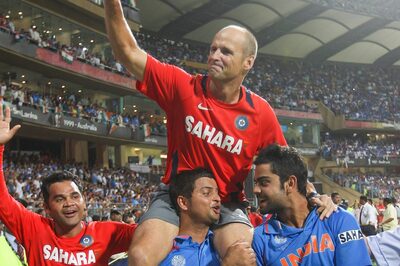
views
New Delhi: Although the ongoing assembly elections in five states in India could possibly come up with two more women chief ministers, there is hardly anything big to celebrate over the representation of women in this massive democratic exercise.
While all major parties contesting the April 4 - May 10 polls, which began with the first phase of voting in Assam on Monday, support the women's reservation bill, this is not reflected in the number of women contestants on the field. The bill, which provides for 33 percent reservation for women in parliament and state assemblies, was passed by the Rajya Sabha last year but is awaiting the nod from the Lok Sabha.
In West Bengal, the Trinamool Congress led by Railway Minister Mamta Banerjee, in alliance with the Congress, is challenging the decades-long rule by the Left Front. In Tamil Nadu, AIADMK leader and former chief minister J. Jayalalithaa is giving a tough time to the ruling DMK-Congress alliance.
Political experts predict positive results for both the AIADMK and the Trinamool Congress, which presents the possibility of Jayalalithaa returning to the chief minister's post in Tamil Nadu and Banerjee becoming West Bengal's first woman chief minister. That is about all for women politicians to cheer about, at least in this round of elections.
In Tamil Nadu, the AIADMK is contesting from 160 out of the 234 assembly constituencies. Among the contesters only 13 are women - making it approximately eight percent representation. The ruling DMK, led by Chief Minister M. Karunanidhi, has fielded 119 candidates, 11 among them women, making it 9 percent.
The scene is less impressive in neighbouring Puducherry, where only six woman candidates are in the fray out of 187 candidates for the 30 seats.
The Trinamool Congress has fielded 34 women among the 228 seats it is contesting in West Bengal, making it 14 percent. The Left parties, which have been spearheading the movement for 33 percent reservation for women, have 15.8 percent representation of women in their list. Among the 10 Left allies, the Communist Party of India-Marxist (CPM) and the Forward Bloc have 41 and four women candidates respectively.
In Kerala, which has 140 assembly seats, the ruling Left Democratic Front (LDF) has put up 14 women candidates, which is 10 percent, while the opposition United Democratic Front (UDF) has eight women contestants.
In Assam, there are 447 male candidates and 38 women in the first phase of polling. In the second phase, it is 449 males and 47 females.
"When it comes to elections, nominations are made on the basis on winnabilty of a candidate, and usually women are left behind," said Mahesh Rangarajan, a political analyst. "Very few women in India own properties, few are highly educated and most of them do not wield much power. Electoral politics is about power and a section of society has been deprived of power completely. It should not be a surprise if they are missing from politics," he said.
According to Rangarajan, politics being one the most male-dominated fields, women, even though they play the important role as voters, fail to rise up to governing positions. "Even in south Indian states like Tamil Nadu and Kerala where the social conditions for women are much better than in other parts of the country, we see only a minuscule percentage of women contesting elections," he added.
Analyst G.V.L. Narsimha Rao agrees. "Politics is one of the toughest professions. It places huge demands on leaders and so we see very few women leaders rising up to positions of power. Most women politicians are from political families, very few start from the grass roots and climb up the ladder," Rao said.
According to experts, the only way to yield more positive results is to ensure reservation for women in politics. "It is difficult if you expect women to have equal participation without reservation in politics. The present system is loaded against women and reservation could be one way we can hope for more women leaders to emerge," Rao stressed.
Sharing this view, Rangarajan said reservation could lead to something which has otherwise been so far unachievable in the country. "The present situation is an accurate reflection of the long distance we need to travel to reach gender equality. Reservation may give it a push," he added.
Apart from Assam, where the second phase of voting will be held on April 11, the other states going to the polls are West Bengal (six phases - April 18, 23, 27, May 3, 7 and 10), Kerala (April 13), Tamil Nadu and the union territory of Puducherry (both April 13). The results will be announced on May 13.



















Comments
0 comment